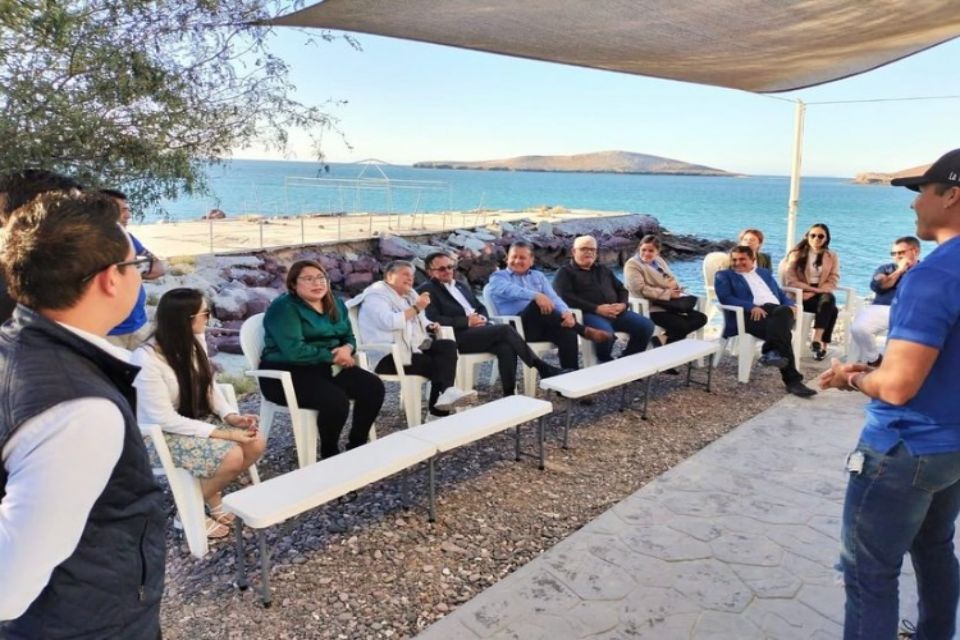Given Mexico's federal system, any new legislation related to climate and the environment needs to be designed, approved and implemented at the state level. However, many states do not have the advanced technical capacity to achieve this. Many states in Mexico were actively seeking partnerships with other countries that have the highly specialised expertise.
The United Kingdom's Partnership for Accelerated Climate Transitions Programme (UK PACT) stepped in to provide that support in 9 states on this area, including Baja California Sur (BCS). BCS is a peninsula in north-western Mexico that includes ten natural protected areas.
These are home to some of the richest biodiversity in the world on land and in the sea. UK PACT, working with implementing partner Environmental Policy and Legislation (POLEA, for its acronym in Spanish), supported the development of a draft climate change law to protect the state's astounding flora and fauna.
One example of how the new legislation will impact BCS involves local communities in the state capital, La Paz, who are dedicated to protecting one of the city's most important ecosystems. This habitat consists of an estuary and wetlands that border the southern part of the urban concentration. Known as El Conchalito, the estuary is home to unique plant and animal species that have adapted over time to the regular mixing of fresh and seawaters.
Mangroves are one of the most vital elements to the natural health of El Conchalito as they provide important breeding grounds for a multitude of sea creatures. In addition, they function as a natural protection against severe weather conditions, which have intensified in recent years due to climate change. Finally, when managed sustainably, the estuary provides both food and economic livelihoods for the neighbouring communities.
These communities make a living by fishing scallops over which they have exclusive rights. Unfortunately, during recent years, the capture of scallops decreased significantly due to illegal fishing. When investigating the issue, the communities realised that the estuary was heavily polluted and in a poor state of health. This, in turn, was causing the mangroves to perish.
This is when a group of women, called "Las Guardianas" or the guardians, intervened to protect the habitat and put an end to illegal fishing. Las Guardianas took on the task of cleaning the estuary, which, after three months, restored the mangroves and other species such as the scallops. The women continue to protect the estuary, its rich biodiversity, and, in doing so, put an end to illegal fishing.
This initiative is not just about protecting the environment and mitigating climate change, it is also about empowering the community with new knowledge and skills. Chela, one of the Guardianas, shares that "It is important to maintain the mangroves healthy, as they are great sequesters of carbon dioxide." In terms of skills, some Guardianas learned new technical skills such as diving, while others learned effective communications to help the group convey environmental messages to the public.

Women fishers and environmental activists thank the UK for its legislative support to protect the environment of Baja California Sur.
The BCS climate change law supported by UKPACT legally reinforces biodiversity initiatives such as those of Las Guardianas. The draft law aims to establish programmes to help coastal communities tackle the effects of climate change.
POLEA conducted a series of consultations and analyses, the results of which were also incorporated into the draft. If passed, the new law would improve upon the first state legislation on environmental issues since published in 1996.
His Majesty's Ambassador to Mexico, Jon Benjamin, travelled to La Paz on 11 January 2023, where he personally delivered the draft law to the state governor, Victor Castro Cosio. Now being considered by the state congress, if approved, this law will be the fourth state climate legislation that UK PACT has helped create or amend in Mexico. During the Ambassador's visit, Las Guardianas gave him a letter thanking the United Kingdom for its much valued support on the draft law.






